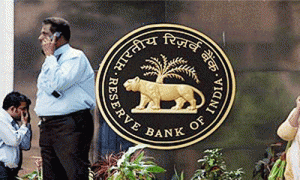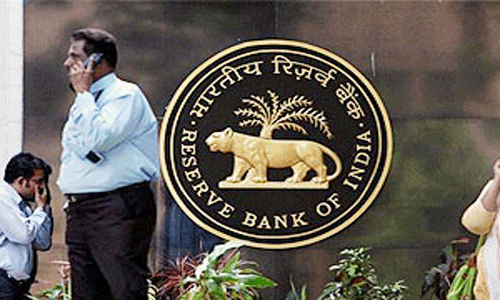Bottom Line: After no reduction in repo rate, the homebuyers are questioning the theory of policy makers that demonetization has led to banks flush with funds.
 “Ever since the demonetization we have been told that the move would be beneficial for the hard-to-manage homebuyers like us. Everyone within the policy corridors and experts were talking that banks would now be flush with funds and it would lead to lower interest rates for the homebuyers. But the quo status on the interest rate has not been in sync with the general perception of the market,” rues Swati Chopra, a prospective homebuyer in Gurgaon.
“Ever since the demonetization we have been told that the move would be beneficial for the hard-to-manage homebuyers like us. Everyone within the policy corridors and experts were talking that banks would now be flush with funds and it would lead to lower interest rates for the homebuyers. But the quo status on the interest rate has not been in sync with the general perception of the market,” rues Swati Chopra, a prospective homebuyer in Gurgaon.
Like Swati, millions of prospective homebuyers across the country are today wondering why the Reserve bank of India (RBI) has kept the repo rate unchanged. The news of unchanged rate has come as a dampener for the homebuyers who were expecting some substantial sops after the symbolic gesture with the Union Budget that promised more affordable houses.
The RBI on Wednesday, Feb 8, surprised the market as it has kept the repo rate unchanged at 6.25% in its monetary policy review. The disappointed market in general and the homebuyers in particular are not impressed with the arguments of the apex bank about inflation concerns.
The expectations of the homebuyers across the nation have been about the lower repo rate leading to cheaper home loans. After all, they have only recently taken the demonetization hit with the promise that the banks would now be flush with funds.
Homebuyers question financial rationality
- Homebuyers have taken the demonetization hit with the promise of banks to flush with funds
- Buyers question what is benefit of banks being flush with funds if cost of borrowing does not reduce
- Union budget 2017-18 promised affordable housing but the buyers have not been incentivized with lower interest rates
- A lower interest rate would also fuel demand in consumption and revitalize the economy
The industry reaction has also been that of concern, even though the leading players preferred caution to not overtly criticize the move. Anshuman Magazine, Chairman, India and South East Asia, CBRE admits that the decision to keep the repo rate unchanged has come as a surprise.
“While the recent demonetization drive has brought in the necessary liquidity into the banks, lowering the repo rate would have helped ease borrowing costs. This would have provided an added thrust to the government’s initiatives for affordable housing and fuelled demand. A low inflation rate amidst slowdown in projected economic growth provided a conducive environment to reduce rates,” says Magazine.
Nikhil Hawelia, Managing Director of Hawelia Group admits that after the budget that promised affordable housing the quo status on repo rate defies the direction of the economy being promised. According to him, if the government is really serious about affordable housing then along with incentivizing the developers to create the housing stock they should also incentivize the homebuyers with lower cost of borrowing.
“The quo status on repo rate means that the market will remain standstill for one more quarter. As developers of affordable housing, we were expecting a sharp cut to fuel the positivity of the Union Budget for this segment of housing. There are reasons for all the stakeholders to feel disappointed,” says Hawelia.
Vineet Relia, Managing Director, SARE Homes feels the RBI’s decision to keep the repo rate unchanged at 6.25% is disappointing, though not unexpected. The fact that credit growth has slipped to multi-year lows, despite lending rates falling by nearly 150 basis points since early 2015, is proof that other factors are at play.
“Demonetisation has accelerated the transmission of rate cuts over the past two months. While it has benefited select borrowers, it has squeezed incomes for most savers, with deposit rates plummeting over two percentage points over the past two years. A cut in policy rate may do more harm than good if inflation creeps up with the rise in global commodity prices,” says Relia.
Experts also believe India needs positive interest rates to induce savings and push up investments. Nonetheless, since demand in real estate and allied industries remains sluggish, a rate cut could have improved liquidity and created renewed interest in property purchase. However, the quo status has sent a warning bell that all is not that well with the state of Indian economy.
The homebuyers are also asking today whether the rate was kept on hold to assess demonetization impact on inflation. If that is the case, then the theory of demonetization making banks flush with funds does not hold ground. It is generally believed that a rate cut at this stage would have helped in lowering the home loan interest rates further after most banks cut down their interest rates on loan in past couple of months.
By: Ravi Sinha





